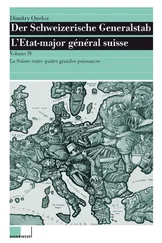Peter’s eyebrow shot up.
Oh? he said.
You’ve read my heart, Duvalier responded calmly. And you’ve read my press. Was the little patch of earth I was responsible for better off during my time there than after? It was, wasn’t it?
Seemingly amused, Saint Peter asked, And what about the human rights you denied your citizens? The democracy you denied your country by staying in power for so long, and then passing governance over to your son as if it were a vintage watch? What about the highly preventable poverty you allowed your people to sink into? What say you, doctor?
Riveted by Duvalier, a Dante verse floated through the President’s mind. It had the melody of a Smokey Robinson song.
His face was the face of a just man,
So mild, if you looked no deeper than the skin;
The rest of his body was a reptile’s…
Except in this vision, this glimpse of his future through the fates of his predecessors as they met their maker, the rest of the body of Duvalier that the President could see was that of a man, a small, stupid man.
On earth, Mr. Peter, the dictator said, the incentives weren’t aligned right for me to do more than I did. I’m a simple man with simple tastes. I didn’t travel much. I didn’t want more from life than I had. I rarely ever left the palace, my home. I was a man caring for my family as best as I could, like all men try to care for their families. What did I care that the roads to Hinche or Jérémie were shit? What did I care that people couldn’t vote, and the constitution was unreliable? Our education system was all right. They wanted to speak French. We gave them French. The people wanted to talk more than build. They wanted to study more than work. They wanted to pose more than serve. Talk, talk, talk, study, study, study. Dance, drink, drink. Fuck. They got that. If they wanted more, if they wanted to serve the land that birthed and fed us, they would have worked, innovated, and developed it. They played the short game. They got the country they worked for. They had the ambitions of children, so we treated them like children. What are you going to do, send all of us Haitians to hell because we had the attention span and work ethic of an orgasm? You got to give me credit for never leaving. Not that they were doling out Mediterranean retirement plans back then.
Again, Duvalier paused to turn around and give a stern look to the President in the eyes. What, the President thought, you of all people find me wanting? If a chocolate-brown man could blush, the President’s face would have turned red. There was a big-enough grain of truth in Duvalier’s contempt for him that his pride felt cut in a place he didn’t know existed. Before Duvalier could go on, Saint Peter raised a hand and stopped him. Thank you, Dr. Duvalier, he said with finality. We have heard enough. We shall render our verdict on your fate.
Now sweating as if his body were already halfway submerged in hellfire, the President watched the saint’s face closely to gauge his reaction to Duvalier’s plea. As the verdict became clearer and clearer, the President suddenly saw another grand, glorious nimbus of light. The fierce fire looked as if heaven itself had opened up to swallow or eradicate them all. Afraid, the President turned away.
Opening his eyes, he discovered that he had returned to Toussaint Louverture Airport’s tarmac. Ruined, broken Toussaint Louverture Airport in the wan afternoon sun was a happy sight for his sore eyes. The President felt relieved, light-headed, and, for the first time in a life steeped in passive-aggression, determined. He felt as if he had received from God a reprieve from an almost guaranteed trip to hell. His own date with Saint Peter had been delayed. He didn’t know how much time he had left. From what he saw up there — or was it down there? — anything can happen after you die. There might be an opportunity for him to get certain things right, or to right certain things he believed he may have gotten wrong, royally wrong, all his life. Where to start?
Mr. President! Mr. President!
They were soldiers, young and unhurt. Foreign. They stood at attention with spines straight, cream-colored jaws squared. They awaited orders. His. His hearing was off, way off. Dust caked his lips as though he had been eating sand all afternoon. There was work to do.
Mr. President, come with us.
Excuse me?
Sir.
What?
Sir!
That’s better. Talk to me.
A Captain Waughray, a dark-eyed London cop turned blue-helmeted United Nations neocolonialist masquerading as a peacekeeper, told the President the sad tale of the earthquake that had risen unexpectedly from a shift of tectonic plates deep beneath the Caribbean Sea to destroy Port-au-Prince as he knew it forever. The President took in the news soberly. He began to search for the right and bright new words to soothe his people in this, their darkest hour since they had been French slaves. He blocked out the impulse to acknowledge the freakiest fact, that in his sixty years never once had anyone he knew or anything he’d read about in his lifelong study of Haitian history mentioned the word “earthquake” as a part of life on the island. In his role as a natural then popular elected leader of the community, tragedy had been his daily bread. When people read the common description of Haiti as the poorest country in the Western Hemisphere, he often thought that they probably had no clue what living that fact was like for a sensitive person. Though his heart had filled with doubt about the quality and number of virtues Saint Peter, Jesus, and God would find in there, he knew his capacity to absorb and help others cope with the torrential pour of unexpected bad news that often characterized life in Haiti was true. So he walked briskly toward a hastily built command center on the tarmac surrounded by a half-dozen earnest and strong young men, and he hurried his emotions to process and discard as quickly as possible the potential pain the disaster may have caused him personally. His wife, his mother, his relatives, friends, and protégé were out there, caught in the brief but deadly maelstrom, and they were unaccounted for so far. Les soldats étrangers s’en foutent . So should he, for now, he decided.
Sitting down felt nice, even on a metal chair. The tent was meant to be his own. The foreign soldiers handed him a bottle of Evian, a sandwich, and a wet towel so he could wipe his face and attempt to freshen up. They apologized for the lack of air conditioning. It should be operational in the morning, they said. The President chased away a bitter thought about how these Americans — and all foreigners in Haiti, to him, were either American or largely funded by America, which made them, often, even more American — could have all these creature comforts and resources so at the ready, so nearby, that they could mobilize them so quickly after such a disaster. The air conditioning in my office at the National Palace hasn’t worked in a year, but I’ll have an air-conditioned tent in the middle of an airport runway within twenty-four hours of the nation’s destruction. The irony. The American armed forces had sent a slew of giant airplanes. His gracious hosts were beginning an informal occupation, a tightening of a grip meant to keep his country stable, which was a far cry from healthy, and a galaxy away from developed or even developing. This state of affairs is to be a source of strength for you, old man. A state of grace. The Americans blanketed the darkening sky with jumbo jets, dropping off men and supplies whose silent footfall reminded the President of midday summer rains in Jacmel or November snowfalls in Montreal. The President listened to the hum of activity surrounding his tent for a while, then dozed off in his metal chair. The cool of the Port-au-Prince night greeted him when he woke up, fitfully, to the sight of Captain Waughray, poker-faced but youthful, almost kind.
Читать дальше












